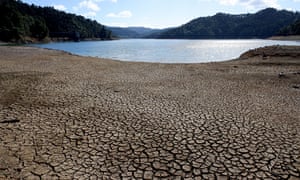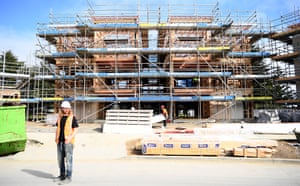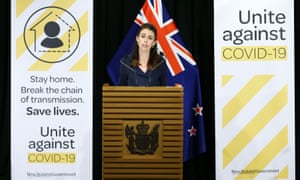As the election approaches, 12 experts and commentators in New Zealand give their view on where Labour has succeeded and failed

When Jacinda Ardern took over leadership of New Zealand’s Labour party less than two months before the 2017 election she had the country’s social woes firmly in her sights, blaming nine years of a National party-led government for child poverty rates and housing unaffordability. Ardern promised a government of transformation, pledging to do better on the climate crisis, tackle mental health and suicide rates, and build tens of thousands of new homes.Her ability to respond in a crisis – such as the Christchurch terrorist attack in March 2019, the deadly volcanic eruption at Whakaari, and Covid-19 – is well-documented and has drawn global praise. But domestically, she has had a political coalition as well as a pandemic to manage: Labour has been in power along with the Greens and New Zealand First.
She promised a strong and empathetic government and a “fairer, better New Zealand”. How has her government performed on its promises of sweeping change? The Guardian asked two experts or political commentators in each field for their assessments.
The environment
Kera Sherwood-O’Regan (Kāi Tahu), a climate justice advocate, and co-founder of social impact agency Activate
Grade: C+
Her introduction was strong with Ardern proclaiming climate change her generation’s “nuclear-free moment”, but unfortunately, getting climate change on the agenda is not the same as getting outcomes. The Green party seems to be the one diligent student dragging the group across the finishing line with an ambitiously named but otherwise lacklustre Zero Carbon Act; and the government as a whole routinely ignores those communities actually at the frontline of climate and environmental destruction in favour of keeping in with the agricultural and business sectors. The one thing they have going for them is that the previous National government didn’t even turn up to class.
David Cormack, a former head of policy and communications for the Green party and co-founder of a public relations firm
Grade: B-
Passing the zero carbon bill and creating a pathway to get agriculture included in the emissions trading scheme are successes that should be praised; however the compromises with National, the centre-right opposition party, that resulted in a watered down bill has now been shown to be pointless, with National’s leader Judith Collins vowing to repeal parts of it. They should’ve just gone for it. Transport emissions are still a massive work in progress.

Housing
Shamubeel Eaqub, a housing economist with Sense Partners
Grade: B
Housing affordability worsened: median house price has risen from 6.3 times the median household income at the last election to 6.9 now. During the previous nine years (under National) it rose from 5.5 to 6.3. The nine years before that (under Labour) it went from 3.9 to 5.5. The government did some long-term things, like building more state houses and delivering reforms on rental rules, and some ineffective things like a ban on foreign buyers. They get an F for their failure to implement their flagship KiwiBuild policy (which promised 100,000 new homes in 10 years), but it’s pulled up to a B by really great stuff in the long-term policy.
Morgan Godfery is a writer and political commentator
Grade: B+
It’s obvious, almost trite, to point out that KiwiBuild was a bust. Very few houses were built, and what did go up was primarily middle class housing in wealthy hotspots like Wānaka. But where the government has distinguished itself is in the slow return of state housing stock with thousands of new builds helping ease pressure on the most vulnerable.

Covid-19 response
Professor Michael Baker, a leading epidemiologist based at the University of Otago, Wellington, who has researched and advised on the Covid-19 pandemic response since January
Grade: A
New Zealand adopted a well-communicated elimination goal and took a rapid, vigorous response to the first Covid-19 outbreak and the second one. This strategy has put New Zealand at the forefront internationally in effective pandemic management which will benefit public health and support a more rapid economic recovery than would have been the case if the virus had been allowed to circulate. However, the response could have been even better (more effective and less costly) if it had fully engaged its science community in the research and development effort and made better use of tools such as masks.
Ben Thomas, a PR consultant and former National government staffer
Grade: A
You can’t argue with results, as a procession of deposed opposition leaders have found trying to grapple with Ardern’s post-pandemic popularity. They could have gone harder, and earlier, particularly in sacking an underperforming health minister, and questions remain about where to from here, but Ardern’s personal judgment have left New Zealand well placed for now.

Poverty
Susan St John CNZM is an associate professor of economics at University of Auckland Business School and a researcher with Child Poverty Action Group
Grade: C+
Underpinning the growing poverty problem is the failure to rein in the excessive wealth accumulation in property. Expensive top-end housing and investment with largely untaxed capital gains soar alongside a ballooning low income group that is ill housed in temporary, poor quality, expensive and often insecure rental housing. There have been small improvements to low incomes but no transformative step changes. Government promises on prioritising child poverty led to very modest reduction targets that are looking less achievable on the current settings amid the Covid-19 recession.
Andrew Becroft, New Zealand’s children’s commissioner and former principal youth court judge
Grade: B-

In the past three years, New Zealand has laid more foundations for reducing child poverty than in the previous 30 years combined. However the income poverty and material hardship statistics are stubborn to shift and they have not significantly reduced. The government has set an achievable and appropriate goal of halving child poverty in 10 years; that’s going to need big, bold changes, including increasing benefits to account for the 1991 cuts, and delivering more in-kind assistance, such as free school lunches and comprehensive healthcare for every young person up to age 18.
The economy
Morgan Godfery
Grade: A-
One mate jokes that Labour’s finance spokesperson, Grant Robertson, is the most effective National party finance minister since the last one. It’s in jest, sure, but true enough: Robertson’s cautious management of the economy shares much in common with Bill English, opting for large subsidies for business, small interventions and increases in welfare, and social policy that favours “investment”.
David Cormack
Grade: B- (pre-Covid), A- (during Covid), C+ (post-Covid)
The economy was doing OK-ish until Covid came and wiped everything out. The government, however, responded very well, with its wage subsidy being a huge reason why we held up as well as we did. That said, with the chance to completely re-tool the economy in a future post-Covid world, the government has instead taken the conservative route, all in the name of “stability”, thus entrenching the same problems we already had.

Health
Emma Espiner (Ngāti Tukorehe, Ngāti Porou), an award-winning writer, final year medical student and host of the RNZ podcast series Getting Better
Grade: A or C, depending on who the patient is
We have a two-tier health system in New Zealand; the top tier is the one that generally works for you if you’re able-bodied, Pākehā, of a gender that fits a binary model, and are heterosexual. The system works less well or actively harms you if you don’t fit that profile. In terms of performance overall, the government gets an A for service to the former, and a C for service to the latter. This includes the Covid-19 response.
Shaun Robinson is the chief executive of the Mental Health Foundation
Grade: B+ for mental health
The government has started some important work including early support services and reform of mental health legislation. However, the lack of a plan for how to implement the recommendations of their mental health inquiry is worrying for many in the sector. Also the fact that there is no ongoing positive mental wellness promotion programme remains a concern.

Education
Jack Boyle, president of the Post-Primary Teachers’ Association
Grade: B+ for secondary school education
A solid B+ on the back of much more partnership with the profession than their predecessors and putting the resource in to support what’s agreed with the sector. There was a solid response to Covid-19 and an openness to work together on agreed challenges through a tripartite accord with unions. More work is needed on equity and a more sustainable workforce but there are some hopeful signals that this might be coming, too.
Grade: B- for tertiary education
If the fees free policy – allowing university students to study for their first year free of charge – was meant to be a first step in dealing with rising student debt and inequitable access to higher education, the government has yet to take a second. Instead, it has been distracted by the struggles of its polytechnics, which it has sought to stabilise via a merger. This has just kicked the sector’s problems down the road and these will be dwarfed by the challenges now facing universities, which must figure out how to survive following the loss of their international students due to Covid-19.

